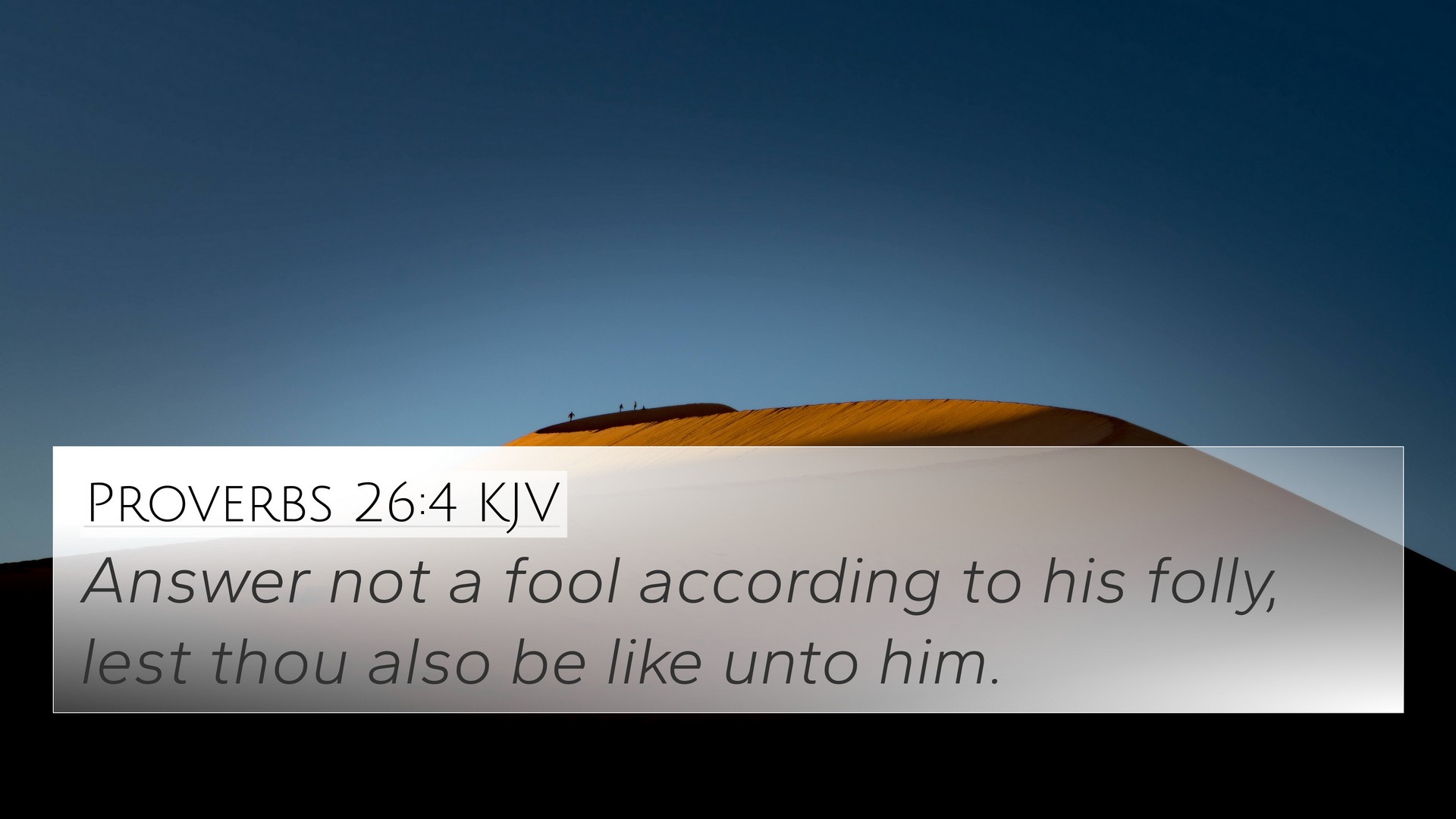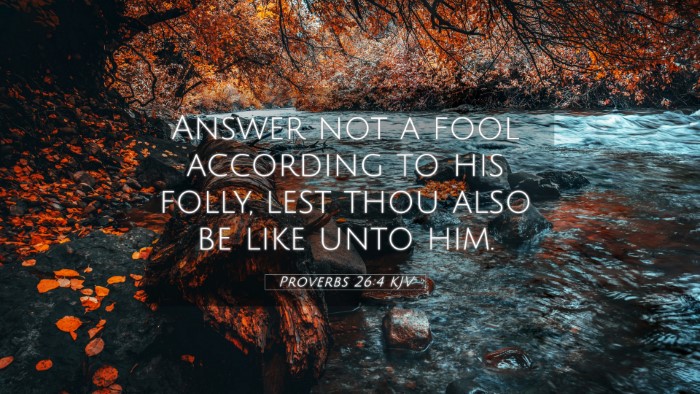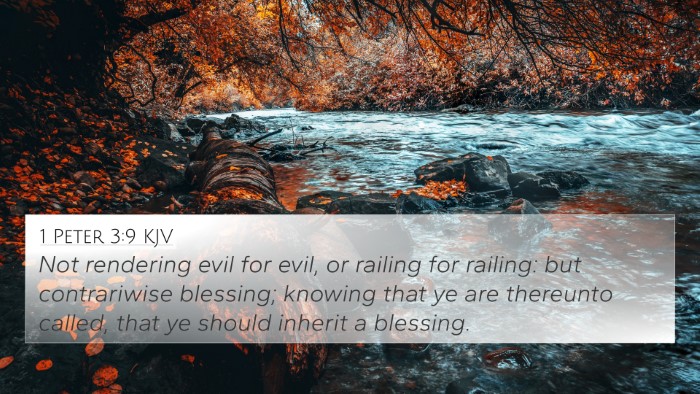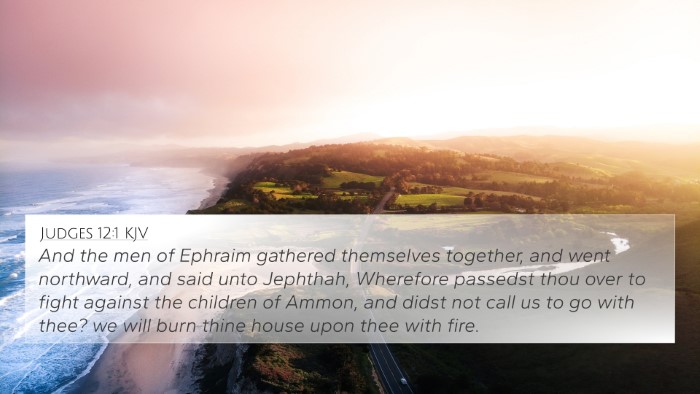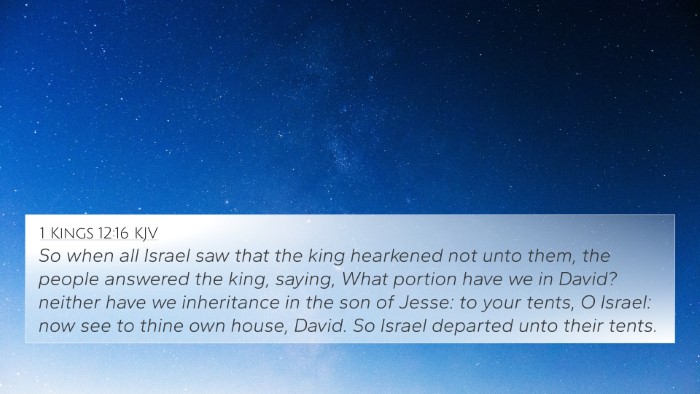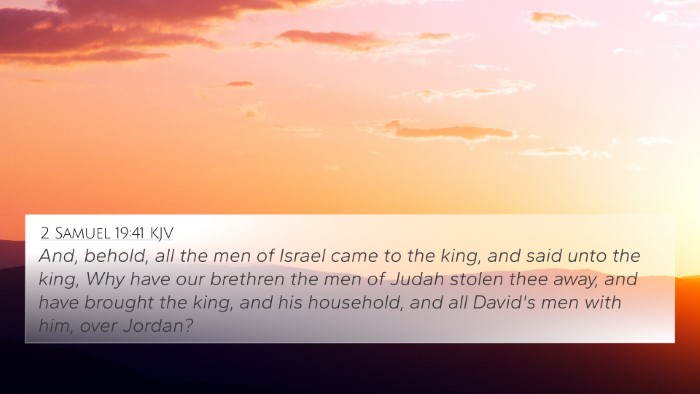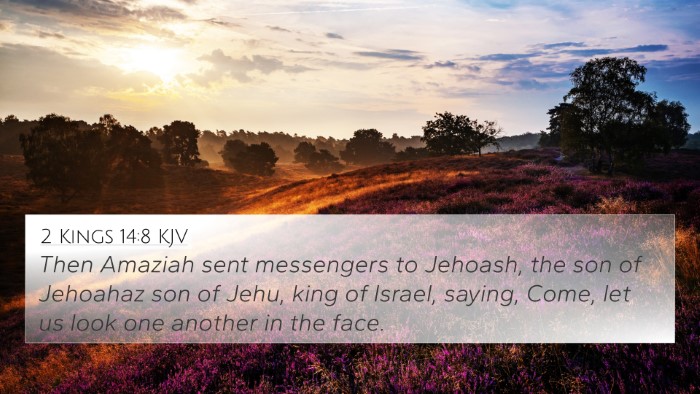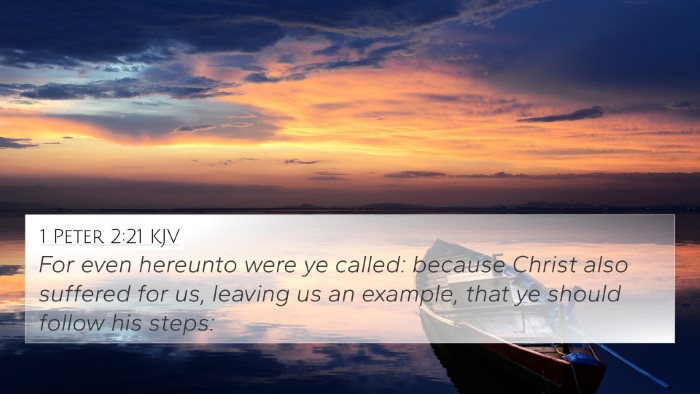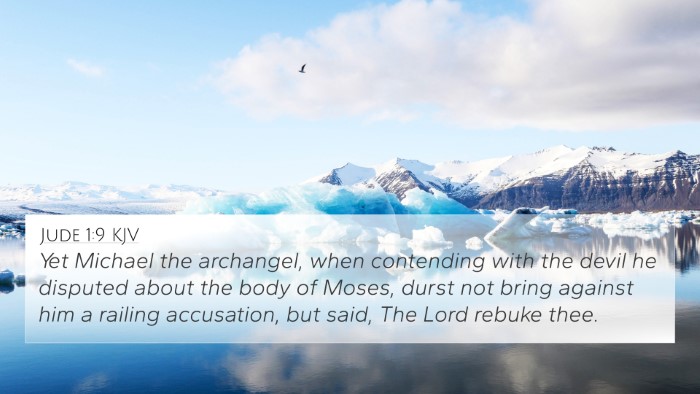Understanding Proverbs 26:4
Proverbs 26:4 states, "Answer not a fool according to his folly, lest you be like him yourself." This verse offers critical wisdom regarding how to engage in conversations with those who exhibit foolish behavior. Below we explore various interpretations and insights from respected commentaries on this scripture.
Summary of Interpretations
The core teaching encourages discernment in dialogue, particularly when dealing with foolish individuals. It warns against replying to foolishness in a way that mirrors the foolishness itself.
-
Matthew Henry's Commentary:
Henry emphasizes that engaging with a fool on their terms can diminish one's wisdom and reputation. He advocates for maintaining a higher standard of discourse and choosing silence over futile arguments.
-
Albert Barnes' Notes:
Barnes draws attention to the distinction between wisdom and folly, suggesting that responding to folly openly can lead to a descent into foolishness oneself. He advises believers to exercise caution in their responses, particularly in heated debates or discussions.
-
Adam Clarke's Commentary:
Clarke elaborates on the nature of a fool, defining it as one who lacks understanding. He highlights that answering such a person can ruin one's credibility and suggests that it's often better to remain silent to evade conflict.
Cross-References
Proverbs 26:4 connects with several other Bible verses, enriching its meaning and context:
- Proverbs 26:5 - "Answer a fool according to his folly, lest he be wise in his own eyes." This suggests a nuanced approach to responding to foolishness.
- Matthew 7:6 - "Do not give dogs what is holy, and do not throw your pearls before pigs, lest they trample them underfoot and turn to attack you." This emphasizes the effort of sharing wisdom with those who are not receptive.
- Proverbs 29:9 - "If a wise man has an argument with a fool, the fool only rages and laughs, and there is no quiet." It reiterates the futility of arguing with fools.
- Ecclesiastes 7:6 - "For as the crackling of thorns under a pot, so is the laughter of the fools; this also is vanity." This verse stresses the emptiness of foolish banter.
- Job 13:5 - "Oh, that you would keep silent, and it would be your wisdom!" This encourages silence in the face of folly.
- Titus 3:9 - "But avoid foolish controversies, genealogies, dissensions, and quarrels about the law, for they are unprofitable and worthless." This reinforces the context of unnecessary disputes.
- 1 Peter 2:15 - "For this is the will of God, that by doing good you should put to silence the ignorance of foolish people." A reminder to exemplify wisdom through actions rather than words.
Applications and Reflections
Understanding Proverbs 26:4 has profound implications for our daily interactions:
- Choosing Silence: Sometimes, the best response to foolishness is silence. This can preserve one's peace and dignity.
- Evaluating Responses: Reflect on whether your reply contributes constructively to the conversation or merely escalates the folly.
- Wisdom in Conduct: Strive to respond in ways that demonstrate wisdom, avoiding entanglement in disputes with foolish individuals.
- Discerning Relationships: Recognize who in your life embodies wisdom versus folly and adjust your engagement accordingly.
Conclusion
Proverbs 26:4 serves as a poignant reminder of the importance of discernment in communication. By exploring this verse, readers can find valuable biblical insights that encourage them to navigate their interactions more wisely. Tools such as a Bible concordance or a Bible cross-reference guide can assist believers in discovering similar themes and verses that relate to their experiences.
Further Study
For individuals seeking a deeper understanding of this verse and its connections to other scripture, consider exploring:
- Detailed cross-reference between Gospels - Understanding how wisdom's portrayal manifests across the New Testament.
- Comparative study of Pauline epistles - Examining how Paul speaks to folly in his letters, providing further insight into this theme.
- Inter-Biblical dialogue - Discover how Old Testament wisdom literature correlates with New Testament teachings on folly and wisdom.
By engaging in these studies, believers can deepen their biblical knowledge and understanding of how to navigate discussions with wisdom while avoiding the pitfalls of folly.
